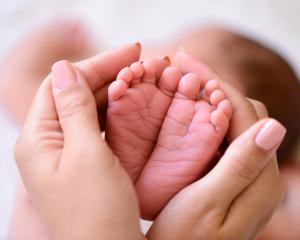

This sort of confidence, self-awareness and assuredness doesn't just happen; it grows in a supportive and nurturing environment.
Self-awareness begins as babies start to mentally organise their world and adapt to it. Their experiences are very basic for a start - smells, sights, sounds, tastes, feelings and physical contacts. Gradually they learn to respond to them in different ways to get differing results.
By their first birthday they've learnt to tell the "me" from the "not me" and are on the way to forming a sense of their own worth and value. It's not instinctive but one of many experiences generated by the significant people in their lives.
During early life children are totally dependent on the love and care of others. The nature of this love and care is the key to how they see themselves. If the experiences are good, if the love and caring is unconditional, then the child feels good.
Psychologist Warren Purkey believes that parental actions are critical in shaping the child's self-image. We are the ones who give or withhold love and affection, rewards and punishments.
"Through the presence or absence of smiling, kissing, nuzzling, rubbing, tasting, playing ... [we] tell the baby how wonderful and wanted, or disgusting and unwanted, [they are]."
This provides the foundation for how children feel about themselves, how they respond to others and, in turn, how others, such as their peers, respond to them.
Unfortunately, many children live in a nightmare of rejection, cruelty and neglect. They're isolated by their parents' absorption in their own interests.
To quote Purkey again, "as a general rule, we can say that any behaviour of significant people that causes youngsters to think ill of themselves, to feel inadequate, unworthy, unwanted, or unloved, is crippling."
Children with a poor sense of their worth are inward looking. They express a narrow range of emotions, repeatedly and predictably; they couldn't care less, sulk, posture toughness, scream and swear. Always there'll be excuses and the blaming of others or outside events.
There is one simple rule: as parents we must have respect for and confidence in our children before our children can have self-respect or self-confidence. The rest follows.
- Ian Munro












